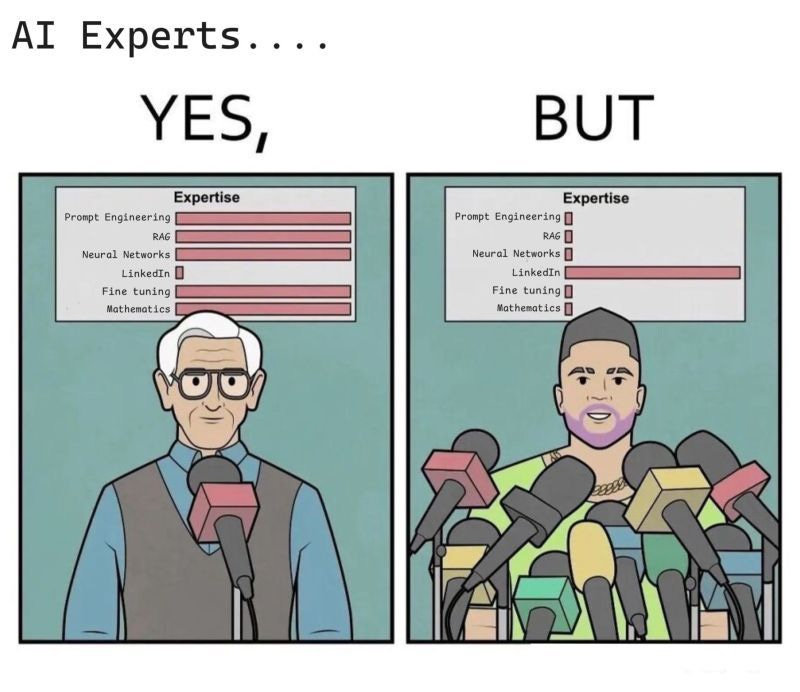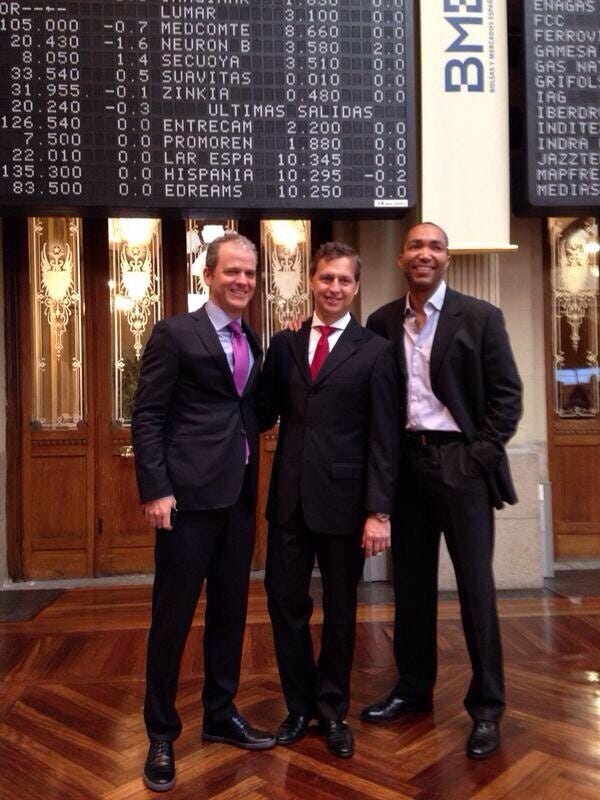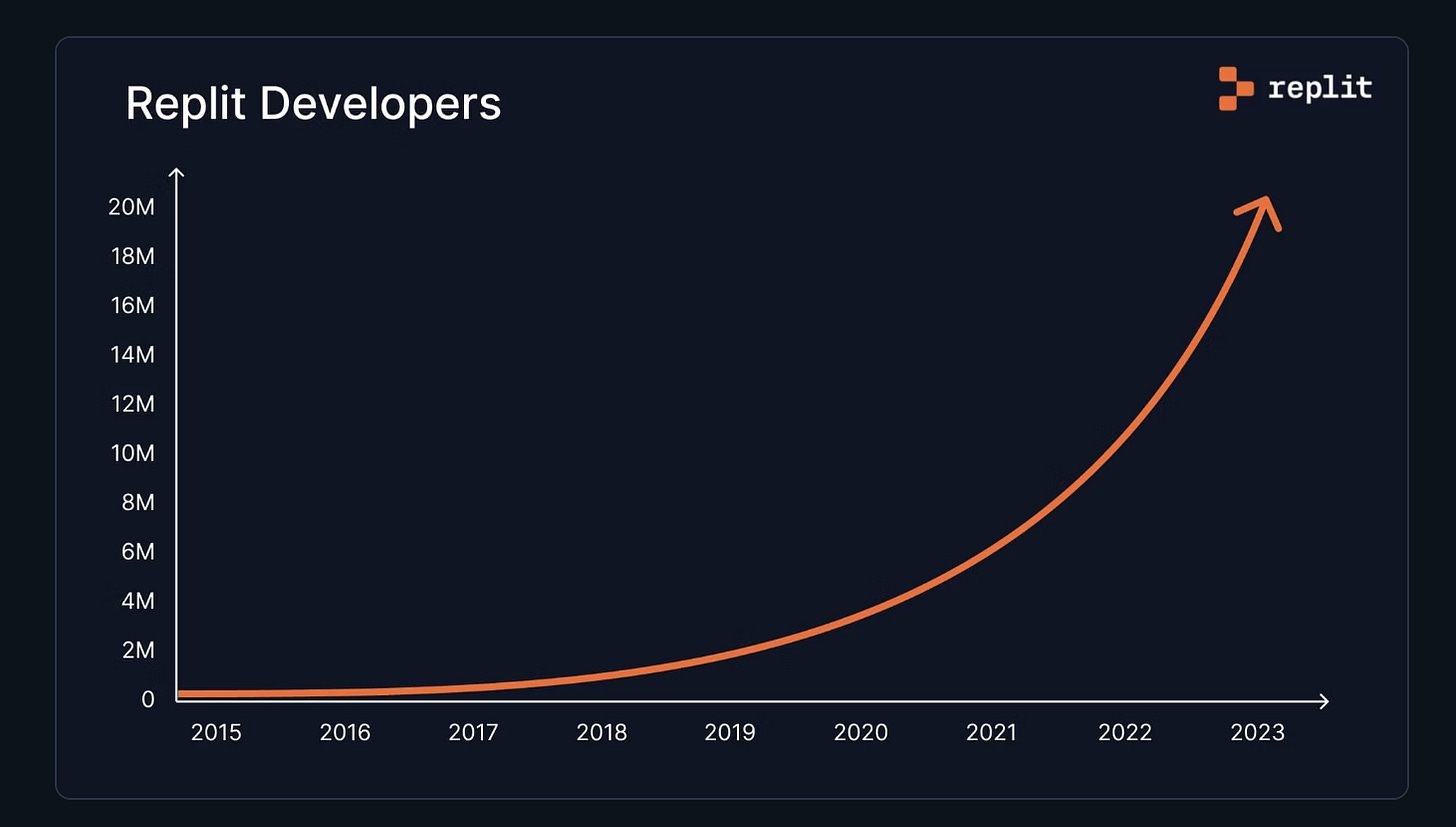In this issue, I explore a fundamental shift in travel: from a world where execution was everything to one where ideas and imagination matter most. AI is changing who can build products, how companies compete, and what skills matter. The implications for travel are profound.
Thanks to OAG for sponsoring this newsletter
How is AI revolutionizing aviation? In the December edition of OAG’s Airline-Tech Innovation Radar, discover the rise of Artificial Intelligence in aviation. Explore three groundbreaking innovations from airlines and airports using AI to streamline operations and boost efficiency. Don’t miss these real-world examples of AI transforming the industry today!
0. The most clicked link in the previous newsletter
The most clicked link in newsletter #162 was pretty much a tie between Christian Watts (Anti-OTA arguments miss the mark) and Insight Partners (AI will drive a fundamental reimagination of software).
1. From Zero to IPO: Building eDreams Before the Playbooks
I wrote a post about our story of building eDreams into Spain's first unicorn back in 1999-2014, when there were no startup playbooks or frameworks to follow. It's my candid recollection, with the benefit of 20/20 hindsight, of what worked (and what we learned) before terms like "pivot", "product-market fit" or "customer discovery" existed. From our early adjustments and messy innovations to the unconventional decisions that helped us succeed. Read +.
2. The AI expert paradox
The gap between AI expert and AI influencer has never been wider.

3. Ideas matter again
AI has inverted an old truth: when execution was everything, ideas were worthless. Now that AI handles execution, ideas are everything.
4. The evolution of hybrid teams
"Hybrid teams" has meant three different things to me:
1990s-2010s: Employment type (Full-time/Freelance)
2010s-2020s: Location (Office/Remote)
2024+: Intelligence type (Human/AI, organic/inorganic)
5. Moving to a world where coding is universal
AI tools are doing for software what YouTube did for video: transforming it from a specialized skill into a creative medium for anyone with an idea. This transformation has two massive implications: First, content creators can now take their creativity a step further. They can now turn their insights into real products and businesses. Second, we'll see an explosion in who can create software: from today's 100 million software engineers to what will likely be over 1 billion software creators in a few years.
Just as content creation grew exponentially over the last decade, we're about to see the same thing happen with software and products. The scale of what's coming is hard to imagine.
We’ve expanded our customer profile to include what we call ‘citizen developers’ — product managers, designers, data scientists and operations professionals…There's going to be a bifurcation of roles between software engineer and software creator…With AI agents and all of that coming down the pipeline, software creators are really going to be superhuman in their ability to deliver customer value. — Amjad Masad - Replit founder
6. A new driver of travel innovation
The biggest catalyst for growth and innovation in travel might come from outside the industry: Replit, a platform that expands the potential universe of software creators.
When a billion people can build their own travel products, we'll see solutions coming from everywhere. Every frustrated traveler becomes a potential problem solver, and every travel creator becomes a potential product builder. Get ready for travel innovation to come from unexpected places: the travelers themselves.
7. The anti-unicorn future of travel?
We're all asking what the next billion-dollar travel company will be. But what if the future is exactly the opposite?
The rise of AI tools won't just change who can build travel products; it will transform what successful travel companies look like. Instead of needing massive teams and venture funding, we'll see an explosion of micro-businesses solving specific travel problems really well. A solo entrepreneur with AI tools can now build and run products that would have needed entire teams just a few years ago.
The future of travel might not belong to a few billion-dollar companies but to millions of specialized solutions that fit together naturally.
8. The disintermediation of the disintermediators
Speaking of alternatives to travel giants, Max Niederhofer (Partner at Heartcore Capital) makes a compelling argument about AI's potential to disrupt travel distribution. His key point is that AI agents will soon be able to bypass OTAs entirely. Instead of going to Booking.com to find a boutique hotel in Rome, an AI agent could search direct listings, email hotels, and negotiate rates on your behalf.
While OTAs have seemed untouchable due to their network effects (more supply → more customers → more supply), AI might change this equation. These AI agents could handle the aggregation and discovery that made OTAs essential while securing better deals by going direct. Read +.
9. TripAdvisor's simple AI win
TripAdvisor doubled its review page traffic with one smart move: using AI to make real reviews more helpful, not to create fake content. They used GPT-4 to analyze reviews and create summaries based on what travelers care about most, keeping original quotes visible for transparency. The key was using AI to enhance existing content, not replace it. The most powerful AI solutions aren't always the most complicated ones.
This insight comes from Kevin Indig's latest Travel Industry SEO Deep Dive. A few other insights:
Google is shifting traffic from OTAs to direct suppliers
Expedia and Booking saw 100% organic traffic growth with redesigned and improved flight route pages.
All-inclusive resort searches are leading growth in travel keywords.
Attractions dominate search volume (71%), far ahead of flights (16%) and hotels (7%)
Trip.com's AI tools doubled conversion rates

10. A campaign worth copying
I love this. Go to Amazon, type in the search bar “Thank My Driver” and Amazon will give your last delivery driver a $5 tip at no cost to you. A free way to show a little love. No forms to fill out, no credit cards needed. Just a simple search phrase that sends appreciation (and money).
Imagine similar programs for thanking hotel staff, tour guides, or flight attendants. Instead of spending that next million on customer acquisition, investing it in showing appreciation and building emotional connections with the frontline people who create travel experiences would likely drive better returns.
If you are based in the US and want to spread some kindness today, head to Amazon and type "thank my driver" in the search bar. It takes 5 seconds and makes someone's day better.
2025 Travel Tech Essentialist Newsletter Sponsorship Opportunities
Reach a focused audience of travel tech professionals by sponsoring the Travel Tech Essentialist newsletter. If you're interested, please complete this form to learn more.
Are you fundraising?
If you are a startup looking to raise a round (from pre-seed to Series D), I can help (for free). Travel Investor Network is a private platform where I recommend innovative travel startups to investors and innovators. If you’re interested, please start by completing this form.
Travel Tech Essentialist Job Board
→ Explore 1041 Open Positions on the Travel Tech Essentialist Job Board
The Hotels Network | Senior Market Manager LATAM | Mexico City
Fora | Graphic Designer | New York City | $110k - $140k + equity
Travel Perk | Senior Digital Marketing Manager | Barcelona, London
Stay22 | Chief of Staff | Montreal
📩 For monthly updates on the latest roles, subscribe to the Travel Tech Jobs newsletter
💼 Employers: If you want to list your jobs here, complete this quick form
If you like Travel Tech Essentialist, please consider sharing it with your friends or colleagues. If you’re not yet subscribed, join us here:
And, as always, thanks for trusting me with your inbox.
Mauricio Prieto











Me encanta Mauricio. We’ll definitely think about how we could apply something similar to the "Thank My Driver initiative". Showing appreciation goes a long way.
Thank you for the insights, Mauricio!! Really good! When reading your comments on whether the future will favor big or small companies, I could not help but think about the internet 25 years ago. Back then, we thought it would democratize distribution and that anybody could successfully sell on the Internet. Yet, it led to a lot more power in the hands of fewer companies (at least in the digital tech world I was in). Was it not the same in travel? And, if so, what do you think is different this time? Just curious :-)